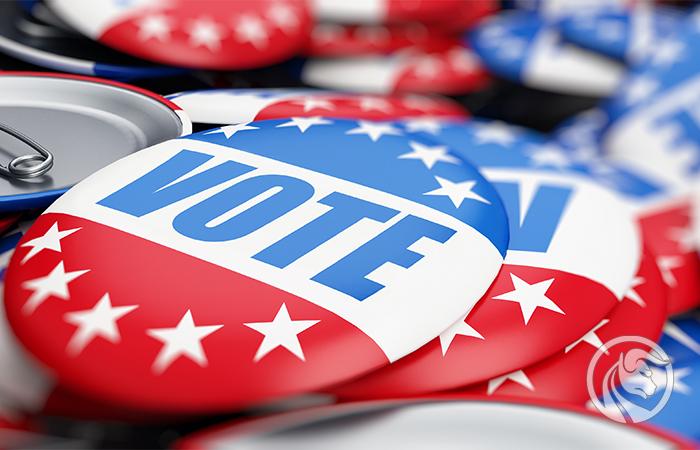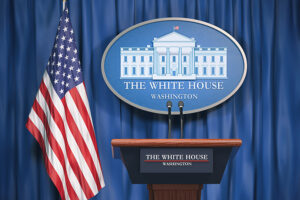This quarter may be difficult for the dollar bulls and bears
The starting conditions at the beginning of the fourth quarter seem difficult in the context of any further depreciation of the dollar. Due to the dysfunctional politics in the United States and the risk of the result of the presidential election being called into question, market participants will be holding their breath until election day. On the other hand, post-election uncertainty may contribute to another jump in bi-directional volatility in all markets and to numerous false starts of both bulls and dollar bears, and this situation may extend even into the new year.
About the Author

John Hardy director of currency markets strategy, Saxo Bank. Joined the group Saxo Bank in 2002 It focuses on providing strategies and analyzes on the currency market in line with macroeconomic fundamentals and technical changes. Hardy won several awards for his work and was recognized as the most effective 12-month forecaster in 2015 among over 30 regular associates of FX Week. His currency market column is often cited and he is a regular guest and commentator on television, including CNBC and Bloomberg.
In the second quarter, the dual weapons implemented by the Fed and the US Treasury Department - quantitative easing and huge cash injections into the US economy - made it possible to lower the rate of the rapidly appreciating dollar, and in the third quarter this movement was continued. As a result, the dollar returned to levels around 2-3% below its pre-pandemic range. The USD sell-off, however, started to weaken towards the end of the summer Federal Reserve has stopped expanding its balance sheet due to the surprisingly strong recovery in economic growth, and the path towards further fiscal stimulus has been blocked as a result of dysfunctional US policy. This topic is likely to remain relevant for most, if not the entirety, of Q19. The dollar's resilience in QXNUMX was also fueled by the fact that the US found itself in good company as the number of Covid-XNUMX infections began to rise almost everywhere - particularly in Europe - threatening further precautionary measures and dealing a blow to tourism in Club Med countries. .
With the start of the fourth quarter, the election spectacle in the United States becomes the most important topic for traders in all asset classes. Due to the lessons learned from the 2016 elections, the market distrusts the forecasted result - one major issue here is the credibility of the polls. New aspects of this year's elections include the amalgamation of different voting systems in each state - many states extend postal voting well beyond the proportions so far - and the fact that fear of the virus will affect turnout in different demographic groups is unknown.
What most likely will not happen this year is the overwhelming certainty of the outcome that emerged in just a few crucial minutes during election night in 2016. It was then clear that Trump had won the election and won both houses in Congress which allowed it to fully implement its program focused on regulatory relaxation, tax reduction and economic growth.
From today to the day of the election, it will be extremely difficult to extract a specific signal for the market from the general information noise, which would reassure investors about election predictions or forecasts for the USD. This can lead to chaotic trading at least until election day, with a high risk of contesting the outcome - and associated conflicting media reports - which will increase volatility until a winner is identified.
Toxic, biased policies hold back new incentives for those who have lost the most from the 'K recovery' and are at risk of even starvation or eviction. At the time of writing this forecast, the issue of Trump's appointment of a very conservative Supreme Court judge to replace liberal Ruth Bader Ginsburg runs the risk of even a complete halt to the government's work.
With the economy and many of its participants reliant on support, such disruptions are detrimental to the US dollar and may induce the Fed to loosen further. On the other hand, the possibility of a government stoppage and weak risk appetite contribute to supporting the US dollar. In the worst-case election scenarios, the clear winner may be JPY, which, since the announcement of Shinzo Abe's resignation in September, is beginning to show signs of recovery after a long period of dormancy.
Questioning the election result or a decisive Biden win?
The main problem in analyzing the impact of the US elections in 2020 on the market is that neither scenario provides a directly obvious outcome.
For some, the reaction to Trump's victory will be a repeat of 2016, when the USD surged significantly due to the expected growth-promoting program, as this result avoids the risk of tighter regulation or higher corporate taxation announced by Biden. However, if Trump wins with a small majority of electoral votes, while obtaining fewer electoral votes, as in 2016, it could lead to social unrest unheard of since the 60s. Democrats will protest, accusing voting obstruction and criticizing Trump's zero-one political style, which has intensified hostility of the progressive left. The influence of choose your own reality media and toxic social media should also be considered.
Likewise, Biden's victory without the Democrats winning a Senate majority - which is quite possible if Biden wins by a small majority - will maintain the political stalemate and prevent Biden from carrying out any of his party's agenda.
For the USD, therefore, questioning the result will be ambiguous, but it may turn out to be negative if the situation worsens and the chaos continues until 2021. A win by a small majority of the candidates without gaining an advantage in both houses of Congress will also be negative for the USD, as Congress will not then it would be able to pass any laws, and the Federal Reserve would be forced to test the scope of its mandate - or even exceed it - to allow for any economic recovery.
At the time of writing this forecast - in late September - the most popular scenario seems to be a decisive victory for Biden and the return of the Senate to the Democrats, even if a significant advantage must be gained to avoid Trump's protests for the next week or more.
In this case, the logic that Biden winning both houses of Congress is unfavorable for the USD may not prevail. Biden's win will hit selected US assets, as discussed in detail by Peter Garnry in his forecast for the US stock market. However, a decisive victory for the Democrats could mean an exceptionally strong fiscal impulse that will spur the demand side of the US recovery much more than Trump's deregulations or tax cuts. Such an approach will ultimately lead to higher inflation and even stagflation, but it may mean the strengthening of the USD for a quarter or two. Biden announces tax increases for corporations and top earners, and it should not be forgotten that over the past few decades, Democrats have been much more cautious fiscal than Republicans.
Beyond the issue of the US elections and their impact on the US dollar, the Covid-19 is of course the main topic. In particular, the important question is whether fall and winter will bring an increase in infection rates and whether the age of the population, better treatments or mutations of the virus may be factors that reduce mortality.
If vaccines under development do not look promising by the end of 2020, the global forecast for economic growth could be lowered a second time. This would significantly harm the reflation narrative that revived QXNUMX against the backdrop of rising commodity prices and support for commodity-linked currencies in emerging and developed economies.
The path to traditional global reflation based on a weak dollar and a new credit cycle will be frustrating as long as the virus holds back the demand side of the economy and fiscal authorities do not push inflation high enough to exceed the real global debt burden. The first political response to the Covid-19 crisis has only exacerbated the problems so far.
Brave new world of currencies?
This reminds me of some reflections that I shared in April when describing what I described as "the brave new world of currencies". I have tried to predict what would affect exchange rates in the medium to long term in a world where central banks have reduced interest rates more or less to zero and where, in addition to quantitative easing, they are even threatening to implement - or are already implementing - yield curve controls.
The idea behind quantitative easing coupled with yield curve control is to avoid price-for-money discovery. This enables fiscal policy to take any measures - inflation is the only limitation - which is starting to discover more and more governments. In such a future, the fundamental issue is the real interest rate - which becomes negative when inflation exceeds the interest rate on government securities. The lack of price discovery on government bonds (the priority is for central banks to ensure that governments are able to finance themselves) means that discipline is only imposed by the exchange rate - perhaps a final safety valve for price discovery. In conclusion, in the world of fiscal constraints, exchange rate volatility can increase significantly.
It should be added that the new Fed's "target average inflation" policy is a harbinger of its own irrelevance and is merely a direction that the Fed believes should have been taken in the previous cycle. The US and other world governments will begin to flex their MMT muscles to deal with the aftermath of the catastrophic Covid-19 pandemic, only stopping when inflation and currency issues become too burdensome. A country that fails to play this game will suffer the consequences of excessive currency appreciation: eventual erosion of export industries, asset bubbles and other effects. Welcome to the brave new world of currencies.






















![Forex Club – Tax 9 – Settle tax on a foreign broker [Download the Application] Forex Club - Tax 9](https://forexclub.pl/wp-content/uploads/2024/02/Forex-Club-Podatek-9-184x120.jpg?v=1709046278)
![Trading View platform – solutions tailored to the needs of traders [Review] trading view review](https://forexclub.pl/wp-content/uploads/2024/03/trading-view-recenzja-184x120.jpg?v=1709558918)
![How to connect your FP Markets account to the Trading View platform [Guide] fp markets trading view](https://forexclub.pl/wp-content/uploads/2024/02/fp-markets-trading-view-184x120.jpg?v=1708677291)
![How to invest in ChatGPT and AI? Stocks and ETFs [Guide] how to invest in chatgpt and artificial intelligence](https://forexclub.pl/wp-content/uploads/2023/02/jak-inwestowac-w-chatgpt-i-sztuczna-inteligencje-184x120.jpg?v=1676364263)


![WeWork – the anatomy of the collapse of a company valued at $47 billion [WeWork, part II] wework bankruptcy story](https://forexclub.pl/wp-content/uploads/2024/04/wework-bankructwo-historia-184x120.jpg?v=1711729561)
![Adam Neumann – the man who screwed up Softbank [WeWork, part AND] adam neumann wework](https://forexclub.pl/wp-content/uploads/2024/04/adam-neumann-wework-184x120.jpg?v=1711728724)





![How to transfer shares to another brokerage office [Procedure description] how to transfer shares to another brokerage house](https://forexclub.pl/wp-content/uploads/2024/03/jak-przeniesc-akcje-do-innego-biura-maklerskiego-184x120.jpg?v=1709556924)

![The most common mistakes of a beginner trader - Mr Yogi [VIDEO] Scalping - The most common mistakes of a beginner trader - VIDEO](https://forexclub.pl/wp-content/uploads/2024/03/Scalping-Najczestsze-bledy-poczatkujacego-tradera-VIDEO-184x120.jpg?v=1711601376)
![Learning patience: No position is also a position - Mr Yogi [VIDEO] Scalping - Learning patience - No position is also a position - VIDEO](https://forexclub.pl/wp-content/uploads/2024/03/Scalping-Nauka-cierpliwosci-Brak-pozycji-to-tez-pozycja-VIDEO-184x120.jpg?v=1710999249)
![When to exit a position and how to minimize losses - Mr Yogi [VIDEO] Scalping - When to exit a position and how to minimize losses - VIDEO](https://forexclub.pl/wp-content/uploads/2024/03/Scalping-Kiedy-wyjsc-z-pozycji-i-jak-minimalizowac-straty-VIDEO-184x120.jpg?v=1710336731)




![Who will win the US elections? [Video comment] Who will win the US elections](https://forexclub.pl/wp-content/uploads/2020/10/Kto-wygra-wybory-w-USA-300x200.jpg?v=1603704365)













